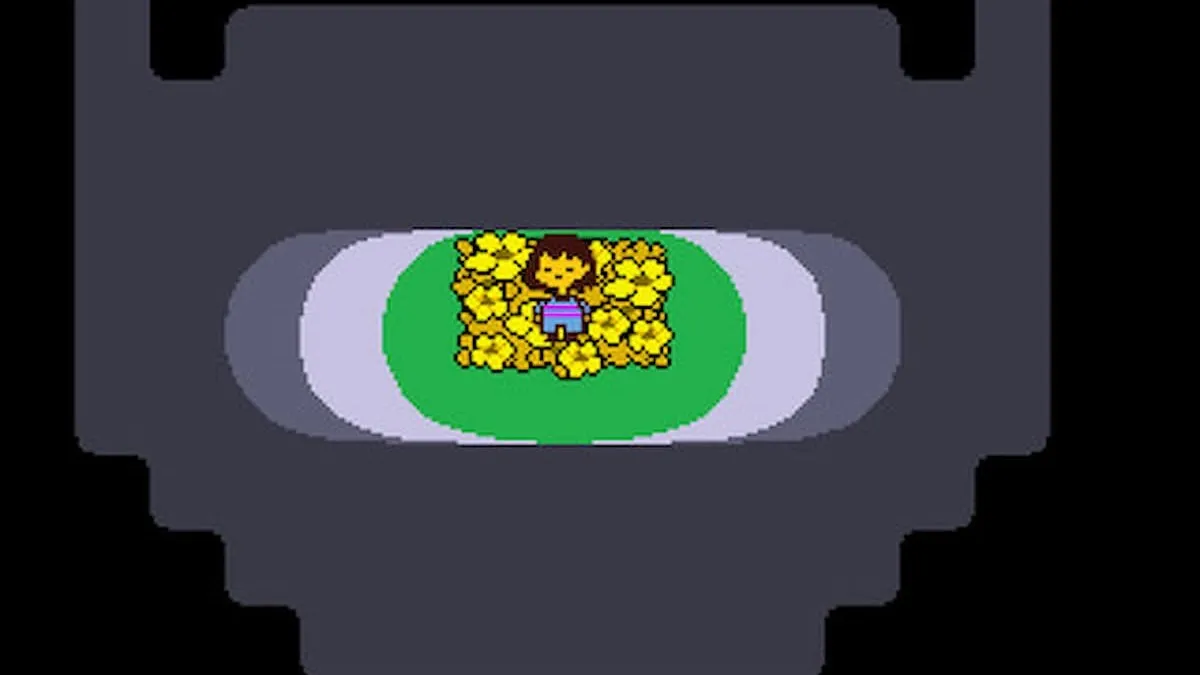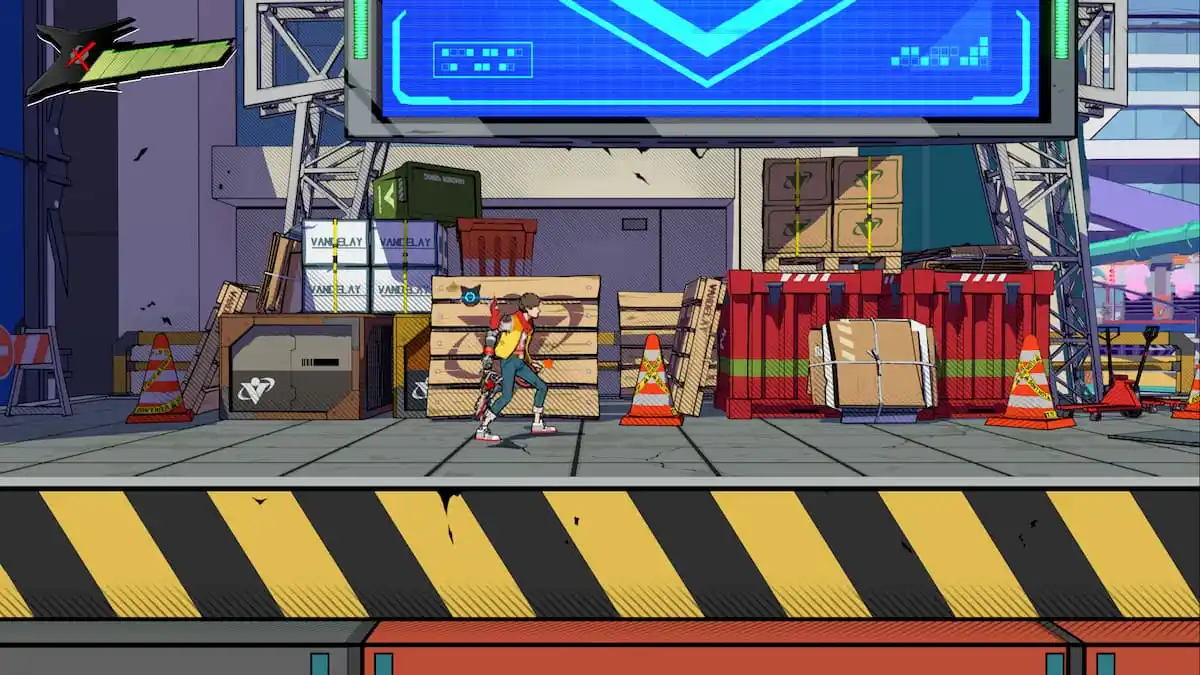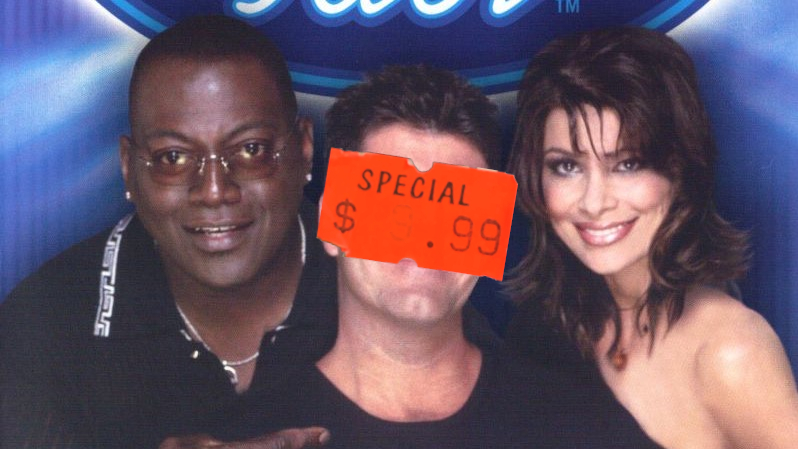I’m not used to a first-person shooter’s soundtrack rocking my world. Role-playing games, platformers and others? Sure. But FPS? You hardly ever see that. And when you do, people sit up to take notice.
When it comes to BioShock, I’m still in…shock at how effective the musical score was. The combination of Garry Schyman’s eerily beautiful score and the selections from the old tunes from the musical theater era made for one of the most memorable soundtracks ever, FPS or not.
I’m pleased to say that gamers can expect to be moved/freaked out even more in BioShock 2. The developers and composer worked to dive even deeper into the abyss with a new score that is likely to make you pee in your pants a little bit.
Speaking with BioShock 2‘s Audio Lead, Michael Kamper, and 2K Marin’s Creative Director, Jordan Thomas, I got so excited about the new score that they were laughing at me. When they weren’t laughing at me, they dished up a gold mine on the score of BioShock 2, detailing just about everything you can expect from tomorrow’s release, all without ruining any story elements. If you’re anything like me, you’ll come away extremely excited about the game after reading this interview.
Destructoid: Hey. Guys. Did you know that Atlas is Fontaine?
2K: [laughter] Really? Spoiler Alert! We might want to issue a recall. That’s going to change some shit.
I like to be creeped out, and I really don’t mind having the shit scared out of me a couple of times. That happened a lot in BioShock. Can I look forward to more of that in BioShock 2? Can I expect to be surprised?
Thomas: Garry Schyman shapes what’s almost orchestral noise into these really creepy cues. He recorded a lot of that for BioShock 2, so I’m sure that you’ll be unfelled by the music.
As far as surprises go, Garry is in the game to have a very different flavor than anywhere in the original. Without spoiling much, it’s fine to say that Pauper’s Drop, for example, has a sound that’s unlike any other in either game. There are some very spooky pieces that come later in the game. Again, I can’t think of any pieces in the original that you could compare them to.
Kamper: No, we worked very hard with Garry (when we were talking with him during the creation of the score) to look at each level at sort of the context of the level, and what we were trying to do thematically, and sort of have him shape the score to fit those moods and those tones. He really, really did a wonderful job with that. And like Jordan said, Pauper’s Drop was a nice example of how it really fit what we were trying to do in that level, but was a take off from what we’d normally have in the world of Rapture.
Each level sort of got a flavor of that, which really makes each experience in that level unique.
I keep hearing about the different in-game environments. I think the more environments you gave Garry Schyman to play with, the more he would be able to do…
Thomas: The relationship was actually very give-and-take. The man is an artist. There were cases when his instinct actually went against mine, but upon seeing the piece set against game play, I was like keep it, he’s right, and there’s a synthesis here that I’m not going to stand in the way of. That was really rewarding for me because I like being proven wrong when the game wins.
[laughs]
Kamper: There were a lot of cases where we’d do video capture of the game play and send it to him. We’d talk and give him sort of the basic outline of what’s going on in the levels thematically. He would go and create some really, really great pieces. He would play them for us, and we would play them against some of that footage, and it would sync up so well. It just added so much depth to what we were presenting visually. As Jordan said, the man is an artist, and he really knows how to bring out that underlying theme and tone.
Thomas: Yeah, he speaks directly to the subconscious, and that is a hard thing to do right.
I had moments in the first game where Garry’s pieces, frankly, would stress the shit out of me. There were climatic moments where there was a little too much to handle, where you’d get crowded with enemies, and then the music got all frantic, and my heart started beating faster, and I couldn’t focus correctly. And when I died, I blamed the music for screwing me up.
2K: [laughter]
Kamper: That’s one thing we really pushed for more of in this game. The combat music, while it was good in the first game, we really didn’t have that much of it, and we really wanted to have some awesome new combat cues in this game. We ended up with one or two really great combat sequences in each level. [Garry’s] score just works so well. He would just play some of that stuff for us and we’d be blown away each time.
Thomas: We should be sick to death of this, but Michael and I play it in our cars!
Kamper: Absolutely. I still listen to it. He did such a great job and I’m so excited because it does so much for the game, and people are going to hear it in that context, but also that we’re offering it in the Special Edition and online so that everyone can enjoy it and listen to it as much as we do.

Would you say that Garry Schyman’s focus had to change, seeing as how the story was sort of flipped on its head?
Kamper: Yes, absolutely. He knows how to do a basic BioShock track very well, very instinctively. He nails it. But the part that took a kind of artistic soul searching was when we were trying to get across the soul of a character, or like, a Big Sister, or Sophia Lamb, whose attitudes are quite different from anyone in the original. Breaking the new ground was the hardest thing, inside the music and out. To meaningfully extend and twist that legacy was where we spent the most time.
I could imagine that you guys were excited to be able to throw across an idea and then have Schyman interpret it and then hand that back. I’d imagine that that was an amazing experience for you.
Thomas: It was sort of like Christmas or Hanukkah. [laughs] You have this very stressful development cycle, quite bluntly, and periodically Michael would say ‘we got a new drop from Garry,’ and I would sort of…prance over to his soundproof booth to absorb the new drop. It was always a treat.
Kamper: For me, it was the most rewarding part of the development. It was something that I have never really been able to do before in any other project at that level. To be able to work with Garry, to be able to hear him interpret our crazy ideas for what the score should be…I got to go down to the Capitol Records building to watch it actually being orchestrated — that was probably the single biggest thrill for me in the entire production process.
Know that I’m extremely jealous. That would have been fantastic to see.
Kamper: Garry got a standing ovation from the orchestra! There’s one piece that you’ll hear at the ending of the game that is just one of the most beautiful pieces that I’ve ever heard — by anyone. We were so blown away when he first played it for us. It’s just so pretty and beautiful.
The orchestra comes in, and they’ve never head the music before. They played it a couple of times, and each time they played it to record it, they did this orchestral clap where they all sort of tap on their instruments. That’s really very gratifying for me, but I’m sure Garry had to be so tickled to have all these people that do nothing but play music for a living appreciate his music in that way.
Wow. I imagine the orchestra coming in expecting the worst, as game music, but the coming away so…[flustered]… Damn, I just want to hear it!
2K: [laughs]
Kamper: Like I said, I cannot speak highly enough about Garry and his work. He’s like the only composer I ever want to work with again because the experience of working with him was so wonderful that I can’t imagine it being any better than that.
Thomas: If I had one request, it would be that you play the game and listen to it in context before you tear it out.
Kamper: Yeah, really, play the game, hear it, and then go back and listen to the score and enjoy it on another level.
Of course, the other side of what makes BioShock musically is the old music.
Kamper: You’re right. It really is part of what makes Rapture and that time period come alive. It really puts people back in that space. It’s very shorthand for putting people back in that time.

What’s creepy to me is that it almost seems like the tracks were made for the game. Like the song “Boogey Man,”…
Kamper: That’s a really good track. It’s so perfect for the context of the tragedy of rapture, but also just never knowing…you know, there’s some creepy shit just around the corner. And that’s pretty much what Rapture’s full of right now.
Thomas: The music tells a very different story. Similar to the first game, we tried really hard to instill a sense of thematic cogency with our picks that the message that is coming through the licensed tracks, that if you were a person that would live in it, it is very much in line with the sort of ideological change you’re experiencing with all the altruism…
And for that matter, the religious flavor as well. Lamb, even though she’s a secular thinker, she promoted religious thought because it was a direct answer to the ideas of Andrew Ryan. She could recruit you using some of that old time-y religious tune. These were tracks that were banned in Rapture. I personally find it very moving.
That’s exciting as that’s a whole new theme for BioShock to be playing with: religion.
Kamper: In the world that was defined by Ryan and his sub-lieutenants, they were sort of proud atheists, and individuals to the last. Lamb followers began with the disenfranchised, and those guys, when they go home after making less than minimum wage, because there’s no regulation, they wanted to believe that there was hope, so they turned to spirituality, the turned to the Blues, and so on.
This was all stuff that was brought down by Fontaine. Smugglers. Lamb really uses that as her way of control of the people.
Thomas: She really wanted to control culture. Assassinate Andrew Ryan’s character from the bottom up. And music was one of her tools.
Kamper: You’ll find a lot of music, like Blues, and stuff like that. There’s this really great piece that I found that was actually used in the cinematic trailer, called “Praise the Lord and Pass the Ammunition.” It completely sums up Rapture and everything that’s happening in BioShock 2 right now.
That’s one of those songs I was referring to that completely sounds like it was made for the game.
Kamper: That’s one of the songs we heard and said ‘that has to be in the game.’
Thomas: There’s an actual line:
[they both sing] “We’re all between perdition and the deep blue sea!”
[laughter]
Thomas: And it was like ‘thanks for that!’ It was a song written about a chaplain taking up arms during the attack of Pearl Harbor, but the lyrics seem to fit into Rapture perfectly.
I think it was cool that you were able to revisit the old musical theater era of songs, but yet create a whole new soundtrack that has a different feel and tells a completely different story.
Kamper: The first game focused on the more poppy songs at the time. And commercialism. We wanted a broader range. Like Jordan said, things that normally, Ryan would have banned because of their messages. It really allowed us to stretch out and find some really unique pieces of music from that era.
Thomas: There’s also a very strong focus on family. Several tracks have to do with the core relationship in the game, and still others with the systems of idealism as it decayed. A number of the tracks feature dreams heavily as well.
How does “How Much is that Doggie In The Window?” play into that?
Kamper: That’s actually in multiplayer this time. We wanted all new stuff in the single-player game, but that one was so popular that we preserved it.
All the tracks you hear in multiplayer, because it’s a prequel, we wanted to keep a lot of the tracks from the first game to have them featured in certain rooms in multiplayer. It was another part in making people feel like this truly was Rapture.
There were a few of those multiplayer songs that snuck into the single player experience as well..
Thomas: Even though I whined…
Kamper: Even though Jordan whined. I loved using those tracks so much. It just really helps in some places, almost as a counterpoint to how they were used in the first game. We really played around a lot with how they were used and where they were placed in the game.
I think a lot of the magic lies between the haunting orchestral work and the creepy recorded older music. Even in the BioShock 2 launch trailer. There was a scene where the Big Daddy was fighting, but the music was oddly cheerful. But when the Big Sister arrived, it quickly transitioned to an incredible orchestral piece. Moments like that really made magic in the first game. I’m hoping we’ll see much more of that in BioShock 2.
Kamper: Yeah. Oh yeah. You definitely will. It’s all over the place. It’s something that took me a really long time just implementing the music in the game and just finding the right balance of where you hear certain pieces between Garry’s score and the licensed tracks. Just to find that balance of what the tone would be in this particular area with this particular fight or location. It was something that was important to me to get right.
Thomas: One false move, or one clumsy moment of overlap in the mix, and all of the sudden the emotional centers in the brain rebel.
Kamper: It was really important to me to make sure that there was a continuity to that throughout the game.
The vinyl EP that comes with the BioShock 2 Limited Edition: Is that the music from the first game?
Thomas: The first album is the BioShock 1 soundtrack. The first side is everything that had been released already initially when the first game came out. The second side is actually a bunch of songs that were not released initially, and some that were not even used in the first game. There’s one track that’s just a few of the game play cues that Garry created. You figure the die-hard fans are the ones buying the Limited Edition, so it’s kind of a treat for them.
I’m one of those die-hard fans, but I don’t have a record player.
[laughs]
Thomas: Yeah, we absolutely know that that would be a risk, but as a collector’s item vinyl was just so appropriate that we felt like we just couldn’t pass it up.
What about the included CD?
Thomas: The CD is the BioShock 2 score. That contains almost every track from the game as well as a few unused tracks that didn’t make it into the game.
________________________
Want the official soundtrack now? Get it here at Amazon.com.
Thanks so much to 2K, Michael Kamper, and Jordan Thomas for this interview.





Published: Feb 8, 2010 12:20 pm